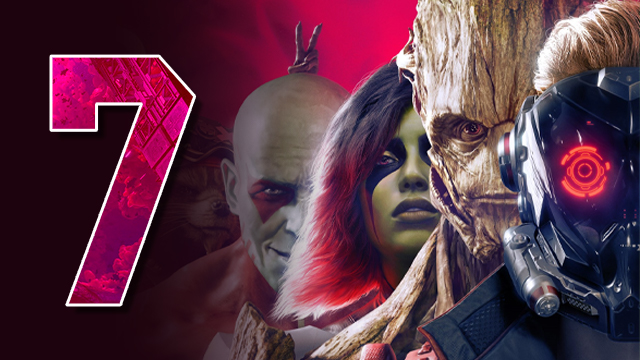Guardians of the Galaxy is not another Marvel’s Avengers-level missed opportunity for publisher Square Enix. Despite being a point of contention among fans when it was released, its complete focus on its central characters – and its decision to make Peter Quill a.k.a. Star-Lord the only playable one — greatly benefits the story it tells. And it’s the strength of this story that carries GotG…
-
A fun, original Marvel story.
-
The Guardians are as fun as ever.
-
Voice acting is great across the board.
-
Combat is fun and snappy.
-
Special abilities are cool.
-
Some fun appearances from lesser-used Marvel characters.
-
A terrible amount of bugs before the day one patch.
-
Dialogue can't keep up with the action.
-
Gamora's an oversight.











